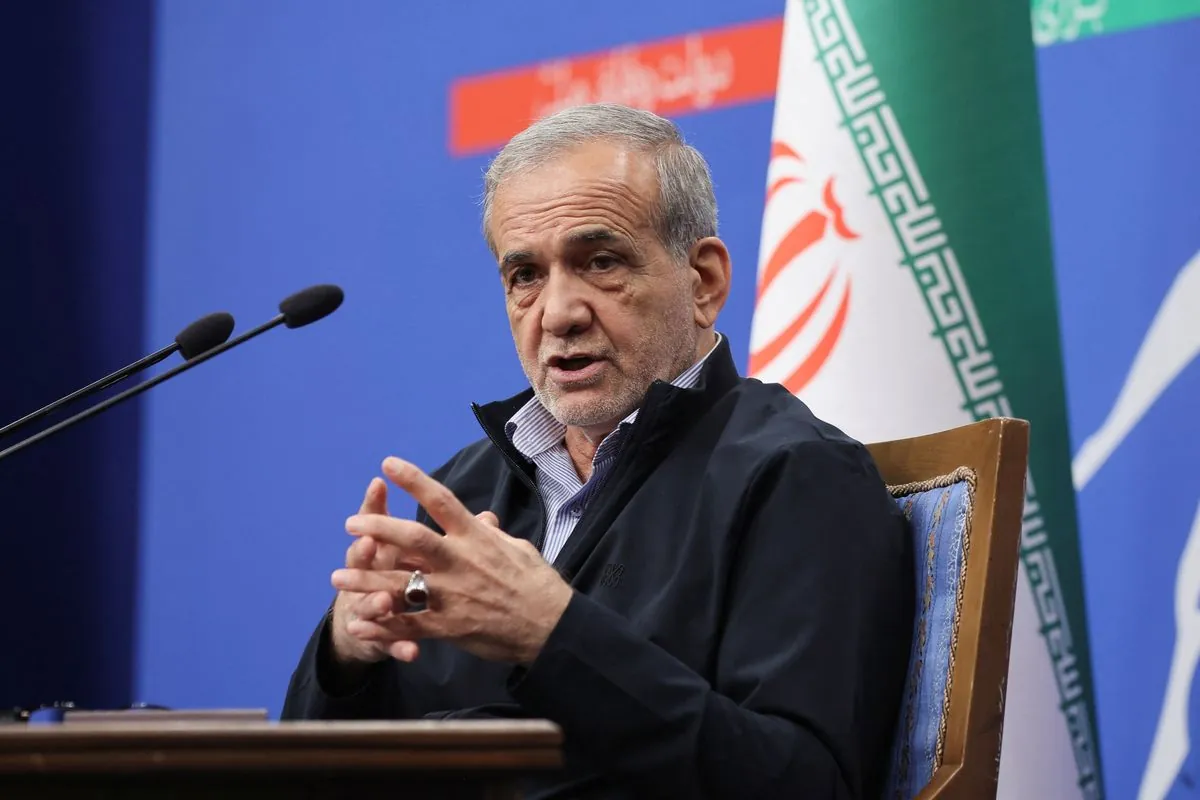In a recent press conference, Iranian President Masoud Pezeshkian denied allegations of supplying hypersonic missiles to the Houthi group in Yemen. This statement comes in response to claims made by the Houthis that they had launched such a missile at Israel.
Pezeshkian emphasized the logistical challenges of transporting missiles to Yemen, stating, "It takes a person a week to travel to Yemen (from Iran), how could this missile have gotten there? We don't have such missiles to provide to Yemen." This denial raises questions about the origin and capabilities of the missile allegedly used by the Houthis.
The Houthis, a Zaidi Shia Islamic movement, have been in control of Yemen's capital, Sanaa, since 2014. They claimed to have fired a hypersonic missile at Israel on September 15, 2024, reaching central Israel for the first time. Hypersonic missiles, known for traveling at speeds of at least Mach 5, are particularly challenging to intercept due to their speed and maneuverability.
In response to this alleged attack, Israeli Prime Minister Benjamin Netanyahu, currently serving his sixth term, warned of severe consequences for the Houthis. Netanyahu stated that Israel would inflict a "heavy price" on the group controlling northern Yemen.
The situation highlights the complex geopolitical landscape in the Middle East. Iran has been accused of supporting the Houthis in Yemen's civil war since 2015, a conflict that has resulted in one of the world's worst humanitarian crises. The distance between Iran and Yemen, approximately 2,000 kilometers, adds to the complexity of these allegations.
Interestingly, Iran unveiled its first domestically produced hypersonic ballistic missile, named "Fattah," in June 2023. This development contradicts Pezeshkian's assertion that Iran lacks such missiles to provide to Yemen. The unveiling of the "Fattah" missile occurred amidst ongoing international sanctions against Iran due to its nuclear program and missile development.
The incident has drawn attention to the regional missile capabilities and the effectiveness of air defense systems. Israel, known for its multi-layered air defense system including the Iron Dome, faces new challenges with the potential introduction of hypersonic missiles in the region.
As tensions escalate, the United Nations continues its efforts to broker peace in Yemen, a process that has been ongoing since the conflict began. The situation underscores the need for diplomatic solutions to address the complex web of regional conflicts and arms proliferation in the Middle East.
